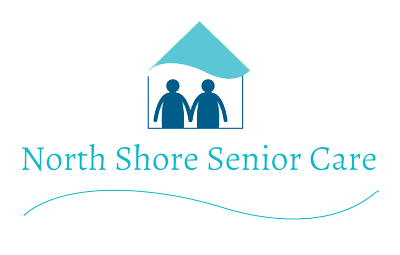Discharge Planning: A Guide for Families

“Congrations Mr. S, you’ll be going home on Tuesday! ”
This news could be good news to some and terrifying to others who just aren’t ready to deal with their new “normal” at home. Patients and families often feel unprepared and overwhelmed when thinking about all of the unknowns. Unanswered questions can create a great deal of fear and anxiety. Sometimes family members are not sure about what questions to ask or where to begin! Many family members are unaware that discharge planning can begin shortly after the patient is admitted.
Effective discharge planning can decrease the chances of a patient being readmitted to the hospital or rehab. As a primary caregiver you are the “expert” in your loved one’s history and previous care needs. You may not be a medical professional but you certainly know about the patient’s set up at home, their daily routine, chores that need to be done, meal planning, errands and meaningful activities.
Knowing the right questions to ask and getting answers can prepare a family member to know if they will be able to meet the needs. Preparing and being well informed before discharge allows for time to to ask for help from family, friends, neighbors or hiring a homehealth aide before they get home and not having to go home in a crisis mode.
Family Care Giver Alliance provides an excellent list of basic questions a caregiver can discuss. Asking the right questions and educating yourself can help prepare yourself and your loved one for a safe dischage home.
Below are some basic questions for Caregivers to ask the primary floor nurse, nurse case manager, social worker, primary occupational and physical therapist throughout the patients stay.
Questions about the illness:
What is it and what can I expect?
What should I watch out for?
Will we get home care and will a nurse or therapist come to our home to work with my relative? Who pays for this service?
How do I get advice about care, danger signs, a phone number for someone to talk to, and follow-up medical appointments?
Have I been given information either verbally or in writing that I understand and can refer to?
Do we need special instructions because my relative has Alzheimerʼs or memory loss?
What kind of care is needed?
Bathing
Dressing
Eating (are there diet restrictions, e.g., soft foods only? Certain foods not allowed?)
Personal hygiene
Grooming
Toileting
Transfer (moving from bed to chair, shower transfer)
Mobility (includes walking)
Medications
Managing symptoms (e.g., pain or nausea)
Special equipment
Coordinating the patientʼs medical care
Transportation
Household chores
Taking care of finances
Questions when my relative is being discharged to the home:
Is the home clean, comfortable, and safe, adequately heated/cooled, with space for any extra equipment?
Are there stairs?
Will we need a ramp, handrails, grab bars?
Are hazards such as area rugs and electric cords out of the way?
Will we need equipment such as hospital bed, shower chair, commode, oxygen tank? Where do I get this equipment?
Who pays for these items?
Will we need supplies such as adult diapers, disposable gloves, skin care items? Where do I get these items?
Will insurance/Medicare/Medicaid pay for these?
Do I need to hire additional help?
Questions about training:
Are there special care techniques I need to learn for such things as changing dressings, helping someone swallow a pill, giving injections, using special equipment?
Have I been trained in transfer skills and preventing falls?
Do I know how to turn someone in bed so he or she doesnʼt get bedsores?
Who will train me?
When will they train me?
Can I begin the training in the hospital or rehab?
Questions when discharge is to a rehab facility or nursing home:
How long is my relative expected to remain in the facility?
Who will select the facility?
Have I checked online resources such as www.Medicare.gov for ratings?
Is the facility clean, well kept, quiet, a comfortable temperature?
Does the facility have experience working with families of my culture/language?
Does the staff speak our language?
Is the food culturally appropriate?
Is the building safe (smoke detectors, sprinkler system, marked exits)?
Is the location convenient? Do I have transportation to get there?
For longer stays:
How many staff are on duty at any given time?
What is the staff turnover rate?
Is there a social worker?
Do residents have safe access to the outdoors?
Are there special facilities/programs for dementia patients?
Are there means for families to interact with staff?
Is the staff welcoming to families?
Questions about medications:
Why is this medicine prescribed? How does it work? How long the will the medicine have to be taken?
How will we know that the medicine is effective?
Will this medicine interact with other medications? prescription and nonprescription? or herbal preparations that my relative is taking now?
Should this medicine be taken with food? Are there any foods or beverages to avoid?
Can this medicine be chewed, crushed, dissolved, or mixed with other medicines?
What possible problems might I experience with the medicine? At what point should I report these problems?
Will the insurance program pay for this medicine? Is there a less expensive alternative?
Does the pharmacy provide special services such as home delivery, online refills, or medication review and counseling?
Questions about follow-up care:
What health professionals will my family member need to see?
Have these appointments been made? If not, whom should I call to make these appointments?
Where will the appointment be? In an office, at home, somewhere else?
What transportation arrangements need to be made?
How will our regular doctor learn what happened in the hospital or rehab facility?
Whom can I call with treatment questions? Is someone available 24 hours a day and on weekends?
Questions about finding help in the community:
What agencies are available to help me with transportation or meals?
What is adult day care and how do I find out about it?
What public benefits is my relative eligible for, such as In-Home Supportive Services or VA services?
Where do I start to look for such care?
Questions about my needs as a caregiver:
Will someone come to my home to do an assessment to see if we need home modifications?
What services will help me care for myself?
Does my family member require help at night and if so, how will I get enough sleep?
Are there things that are scary or uncomfortable for me to do, e.g., changing a diaper or helping with a shower?
What medical conditions and limitations do I have that make providing this care difficult?
Where can I find counseling and support groups?
How can I get a leave from my job to provide care?
How can I get a respite (break) from care responsibilities to take care of my own healthcare and other needs?
- 5 Tips For Fun and Safe Outings With Seniors - March 23, 2019
- Discharge Planning: A Guide for Families - March 13, 2019
